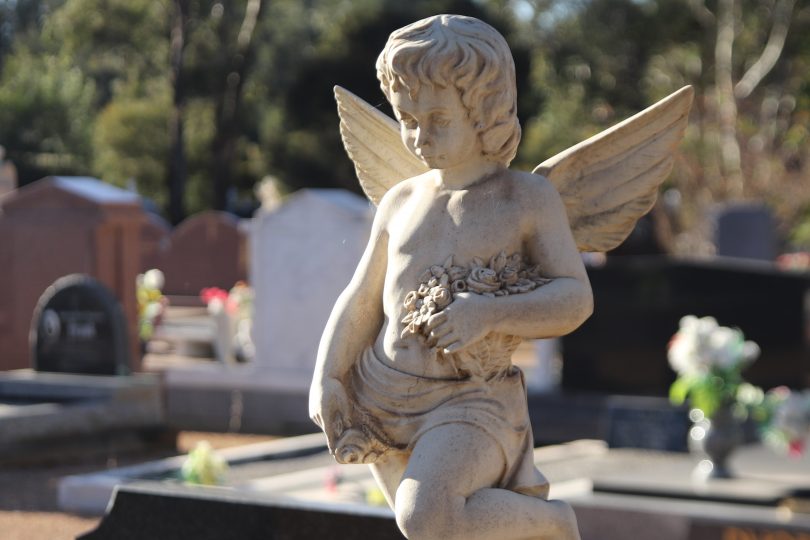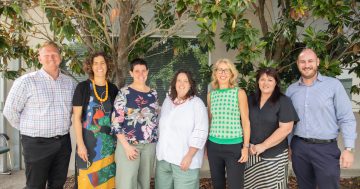
Death and dying have been taboo subjects for many, but a Science Week forum is demystifying the process. Photo: Damien Larkins.
They’re as much a part of life as birth is, but dying, death and what happens afterwards have been pushed aside as old rituals disappear and these everyday events take place in hospitals and funeral homes instead of within families.
That artificial distance can make death confronting as well as sad, as many people no longer know what to do or where to start when presented with the reality.
Woden Library has teamed up with Tender Funerals, a not-for-profit funeral service and community venture in the process of setting up in Canberra, for a “panel of positivity” about end of life on 18 August – and they’ve been overwhelmed with interest.
The panel includes Professor Imogen Mitchell from the University of Canberra, Indigenous trauma specialist Dr Karen Demmery, Catherine Prosser from Tender Funerals Canberra Region, and Kerry McMurray, CEO of Canberra Memorial Parks.
Catherine Prosser says entering the discussion via a scientific angle – what happens at death and while people are dying, and what takes place next – helps demystify the process and gives people an entry point to the conversation that’s not focused on sometimes emotionally fraught territory.
“For many, this will be an easier way to get into this fascinating and important sphere and find out more about the nitty-gritty of how it works,” she says.
“Dividing the conversation into three areas is useful too. People may not have thought through what happens after death – I’m sure we’ve all had a relative who says ‘Just throw me into a cardboard box’ but it’s just not that useful when the family has to work out.”
Catherine says there’s a growing level of interest in the topic, citing the response to an ABC Australian Story on Tender Funerals and the strong interest in local industry tours of the Gungahlin Crematorium, operated by Canberra Memorial Parks.
There’s also strong interest from volunteers who want to offer their time, and Catherine is hoping to bring ‘death walker’ Zenith Virago’s training to Canberra.
“People are interested in being better when accompanying people on this journey, like birth doulas. It’s the same training for the other end of life. Some people want this knowledge for themselves, others want to help family members or might even be looking for a career,” Catherine says.
“There are different and better ways, more choices about death and what’s right for each person.”
In the past, Catherine says, death rituals were closely connected with community ties and extended family groups. As people became more mobile and their families became smaller, death was sterilised. No longer something that happens in homes and communities, death was taken over by hospitals and the funeral industry.
“I think people realise we’ve come too far. They want to connect back authentically to their community, that’s where death care and celebrating a life comes from,” she says. Catherine thinks many people have lost sight of how much can happen at home, what’s safe and how to manage that process too.
Science Week provides a perfect opportunity for the discussion – it turned out the Woden Library had been considering many of the same questions. The panel came together quickly and includes plenty of opportunities for Q&A.
The ‘Dying, Death, Disposal’ panel discussion takes place at 6 pm on Friday 18 August at Woden Library. The event is free to attend, but registration is required. Visit the website for more details.













